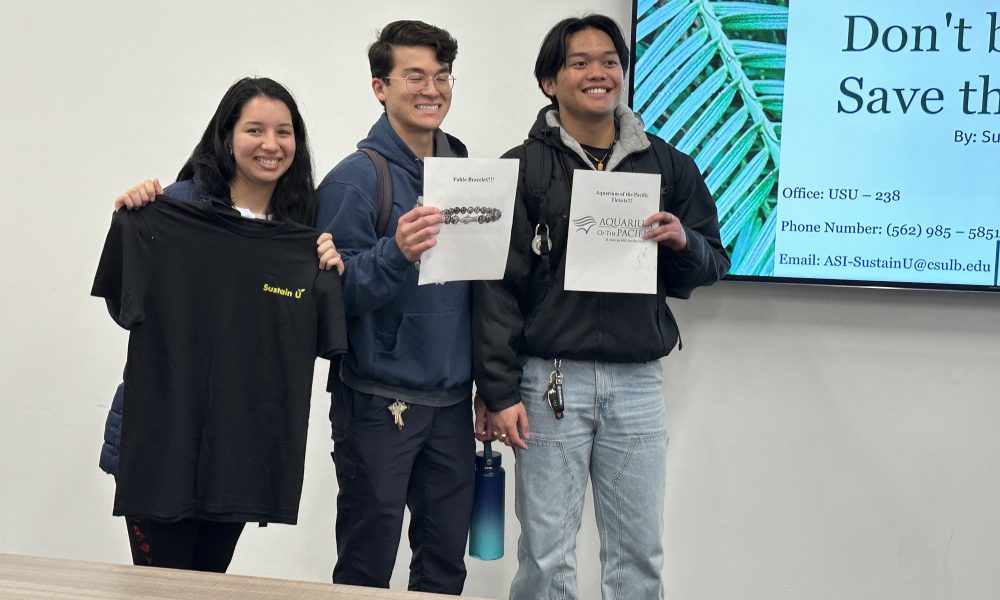Associated Students Inc. held an event, Don’t Be Wild, Save the Wild!, on Monday to help raise awareness about wildlife, habitat loss and climate change across the globe.
The event was hosted by ASI’s Sustain U department, which focuses on educating students and faculty about the environment and sustainable options to use in daily life.
Students learned about how the spread of disease and climate change contribute to animal endangerment, including habitat loss for animals. There were also opportunities to win prizes such as sustainability kits, animal tracking bracelets and Aquarium of the Pacific tickets.
“I learned about all the types of endangered species and what that means and what effects it has on us as a society,” said Rita Alexandrov, a fourth-year marketing major. “One way we can combat climate change is by educating ourselves and educating the ones around you.”
Topics included ways to protect endangered animals and their habitats.
“The biggest impact was to visually see the change and decline since it started and the drastic drop in the atmosphere,” said Flor Hernandez, a senior child development major, referring to the PowerPoint slides during the presentation.
The event also included charts that visually demonstrated the threat level of certain animal species, ranging from not evaluated to extinct. There are currently more than 42,100 different species that are endangered or vulnerable, according to the International Union of Conservation Nature Red List.
Three types of habitat loss, habitat destruction, habitat fragmentation and habitat degradation, result from human activity, such as the development of houses and human food supply, which deplete habitat resources.
Polar bears, one of the animal species discussed at the event, are losing their habitat due to the fast rate of melting polar glaciers. A video that was shown talked about the effects of climate change and how humans have warmed the planet with the mass production of carbon dioxide. Glaciers have been melting since 1975, which has led to a rise in sea levels.
“Glaciers are melting at a more rapid rate and pace over the years,” said Alda Mancia, lead sustainability assistant.
Along with rising sea levels, climate change has impacted weather, leading to severe storms and droughts in some parts of the world. Sea life has become extremely vulnerable as there is less food for animals and also pollution and overcrowded fishing.
“I found more research that marine species are more endangered because the oceans are warming up,” Mancia said. “So they begin to lose their habitat and have to migrate, and it makes it harder for them to find a new place.”
People can help save wildlife and animal habitats by donating to organizations such as the World Wildlife Foundation, which vulnerable and endangered animals across the globe.




